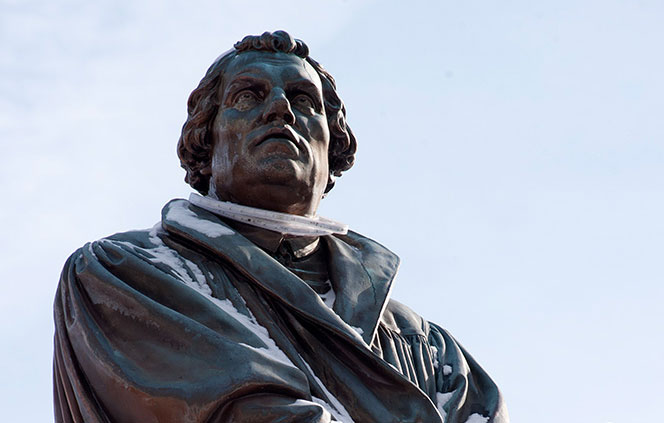
Concordia Seminary Newsroom
Luther as reformer of pastoral care

By Erik Herrmann
Reformation Day. Each year the day gives us occasion to reflect on the significance of the upheavals of the 16th century — upheavals that changed the religious, social and cultural landscape of the West, especially the Western church. What was at stake? What was it all about? Was it worth it? As we close in on the 500th Reformation Day in 2017 such questions will even begin to interest those who have no religious commitment to what took place then.
Of course the Reformation is too complex a time and movement to be only about one thing. Its causes and effects touch on a wide range of social and political factors, theological ideas, unique personalities and churchly pressures. Some would even
argue that it is better to speak of reformations rather than a single, unified movement.
Yet in spite of the complexity of the Reformation, Oct. 31 — Reformation Day — marks a very specific event with a relatively narrow scope: Martin Luther’s posting of the 95 Theses Against Indulgences. Admittedly, it is a match that sets off a firestorm, but the nature of this event is often obscured by the tumult that follows rather than its original intent. In short, Luther’s 95 Theses were written as a protest against bad pastoral care, and it is from this perspective that we should try to understand what Luther was up to in those early years of the Reformation.
Luther was only interested in matters that touched on the heart of everything — the whole of theology and the salvation of all was at stake. When Luther began to change things in the university curriculum at Wittenberg, he did so because of how it would affect the weekly preaching, teaching and pastoral care on the parish level. That was the goal of reformation for Luther.
But what was pastoral care on the eve of the Reformation? Of what did it consist? The formal, ecclesiastical, that is priestly aspects of pastoral care, could be largely subsumed under the following: the sacrament of penance, the selling and buying of indulgences, and private Mass.
It is more customary to think of Luther as a reformer of doctrine (perhaps a specific doctrine like justification or the Lord’s Supper) and as an ardent opponent of papal authority. But questions of doctrine and theological authority arose for Luther as means to a greater end: the pastoral care that nurtures a genuine Christian life. Beginning with his own personal search for consolation and hope, Luther urged practices that would saturate one’s life with the Word of Christ. Only in this deep connection to Christ did Luther find freedom and strength to live in a world shaped by the contradiction of God’s providence and the continual presence of sin and suffering.